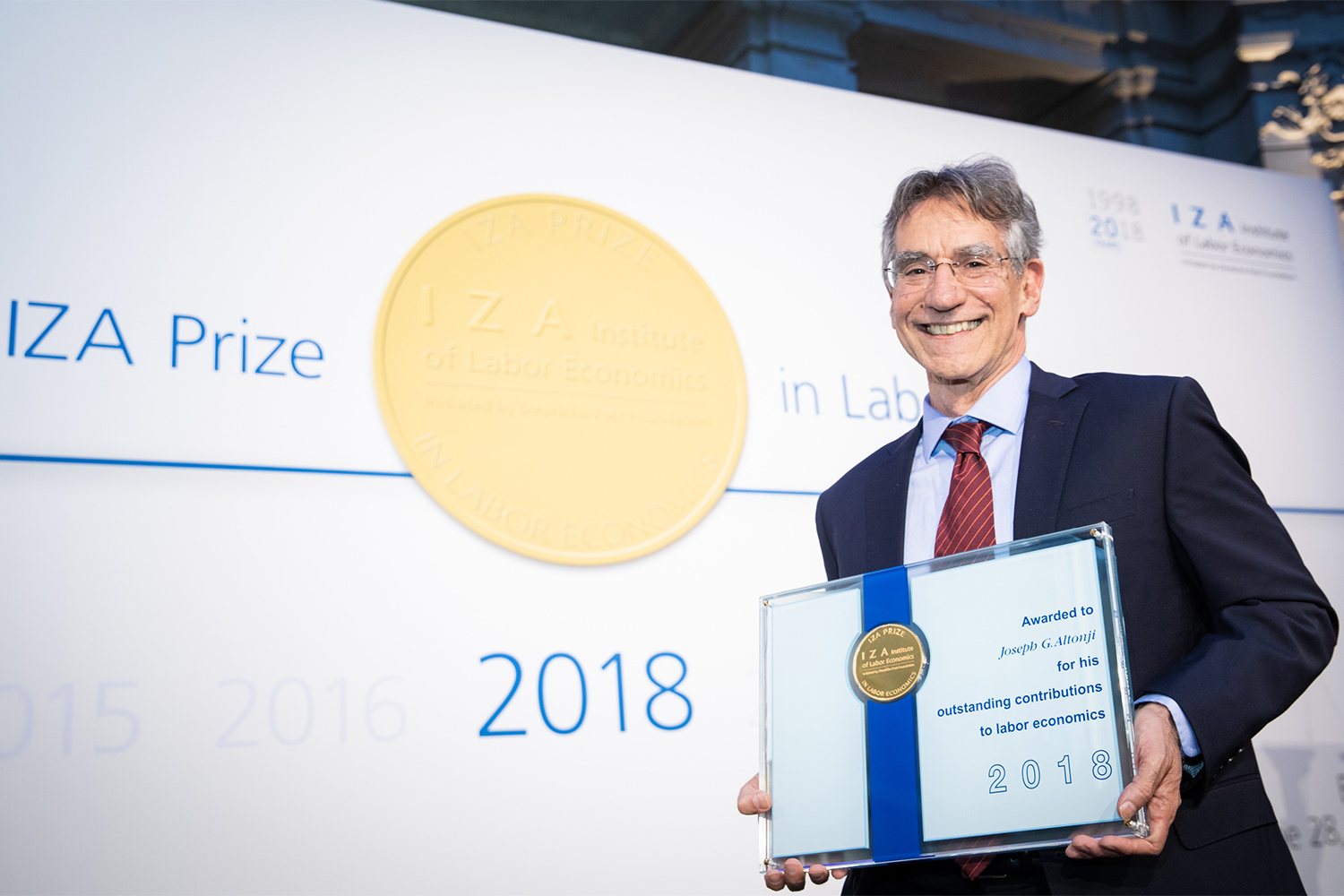Joseph G. Altonji (Yale University) will receive the 2018 IZA Prize in Labor Economics for his seminal contributions to the economic analysis of labor supply, family economics and discrimination. Worth 60,000 euros, the IZA Prize is regarded as the most prestigious science award in the field. It will be formally conferred during the World Labor Conference celebrating IZA’s 20th anniversary in Berlin on June 28, 2018.
According to the award statement, “Altonji’s contributions have shaped the understanding of how households decide on their labor supply under fluctuating business cycles and changing labor markets, whether the family is the relevant unit of economic decision making, and what the mechanisms behind labor market discrimination are. An overarching theme of his work is that even the most insightful and fundamental theoretical advances must be supported by rigorous empirical evidence.”
[download the full statement – PDF]
The IZA Prize Committee consists of seven distinguished economists, six of whom are previous Awardees. “Picking Joe Altonji as this year’s IZA Prize winner was an obvious choice. His profound contributions to several important areas of labor economics – his concern about taking economic theory and measurement seriously – made the selection committee’s job very easy,” said IZA Network Director Daniel Hamermesh, who chairs the committee.
[read more about the IZA Prize and previous winners]
About the Laureate
Joseph Altonji is currently the Thomas DeWitt Cuyler Professor of Economics at Yale University, a Research Associate of the National Bureau of Economic Research, and a Research Fellow of IZA (since 2001). In 2018 he will be President of the Society of Labor Economists. He is an elected fellow of the Econometric Society and the American Academy of Arts and Sciences. He has served on a number of government advisory panels, and currently is a member of the U.S. Federal Economic Statistics Advisory Committee and the National Science Foundation’s Social, Behavior and Economic Sciences Advisory Committee. Recognizing the need for supporting the public debate with economic evidence, he became a founding editor of Microeconomic Insights, a platform providing accessible summaries of economic research.
